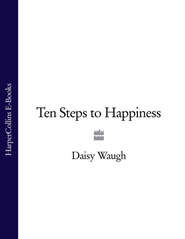По всем вопросам обращайтесь на: info@litportal.ru
(©) 2003-2024.
✖
Bordeaux Housewives
Автор
Год написания книги
2018
Настройки чтения
Размер шрифта
Высота строк
Поля
FINDING THE WILL (#ulink_5a007a73-1478-5e33-b68f-f378210d342a)
In fact, Mr and Mrs Haunt had always had fire inside them. Only the London parking regulations and the birth of their two young children had temporarily dampened the flames. They met, the first time round, sometime in the early 1990s, when they were both aged twenty-one. They met at a Somali refugee camp on the Kenyan-Somali border, where they both briefly happened to be working as volunteers; volunteers whose youthful idealism was already beginning to curdle with experience. They spent a week together near a hot, dry place called Wajir, drinking Tusker beers around desert campfires, smoking Sportsman cigarettes and mulling over the world’s evil ways – and they liked each other very much. Actually, they already loved each other. But Maude had a journalist boyfriend she’d left in Mogadishu, Somalia and, at the time, Horatio was more or less meant to be living with a US Peace Corps girl based in Nanyuki, Kenya. It wasn’t, they agreed, meant to be. Or not then.
But time passed. They returned home, both of them to London, to noisy bars and mortgages and numerous beige-coloured offices with mini dividing walls. They forgot about each other. They forgot about the desert nights and the starry desert sky and all the magic of Africa – until one day, at one of their beige-coloured offices, they bumped into each other again. They were in the same lift. They were on their way to the same seventh floor, and the same afternoon course, called Successful Interfacing with Clients. Seven years had gone by. Long years. They almost cried with happiness.
Marriage quickly followed, and then Tiffany and then Superman and that strangely dreary dinner party with bigbosomed Rosie, the Born Again. Mr and Mrs Haunt continued with their not-very-exciting lives, full of love for each other and their children, but overshadowed by something intangible: boredom, guilt, disappointment, exhaustion. They lived like this, going to work and going back again; rejoicing in Superman’s first tooth, in Tiffany’s never-ending stream of bons mots; occasionally going out and meeting new people but mostly putting the children to bed and falling asleep in front of the telly.
And then the thing happened. Maude Haunt’s thirty-fourth birthday, and Horatio was taking her out to dinner. The minicab driver who came to pick them up bore all the fine-boned features of a man from the Horn of Africa, and because the Haunts already had a bottle of champagne inside them, and the sight of anything or anyone from that part of the world tended to make them nostalgic, they struck up a conversation with him.
At first he wasn’t enthusiastic. He was cagey. But when they told him they’d met each other working at the Somali refugee camp near Wajir in Kenya, he seemed more interested. They told him Maude had been working on a health project in Mogadishu and he seemed more interested still. That was when he turned around to take a better look at his passengers without even stopping the car.
War-torn, lawless Mogadishu was his own hometown, he told them. They learnt that he’d been a doctor there and that he too had worked for a while at the refugee camps. His wife had been a midwife at Mogadishu’s only maternity unit, delivering babies while gun battles raged outside. Until the day the hospital itself was attacked. She was raped, battered, left for dead. When she didn’t die she and her husband decided, finally, to follow the exodus, and so they took their surviving three children and fled, arriving in Britain without papers, unable to prove who they were or what they did. Asylum was refused. Appeal refused on a technicality. The doctor, his wife and three children had been in hiding, without identity, ever since.
A horrible story. Another horrible story. Awful. Terrible. Unimaginable. Sometimes we forget how lucky we are. We do. But anyway. It’s second on the left. After the traffic lights…Except on this occasion Maude happened to know the hospital. She knew the midwife.
A small world. That’s what changed everything.
It cast a pall over the birthday celebrations. Horatio had booked a table at a restaurant in Soho with a Michelin star. It was cripplingly expensive, and neither he nor Maude would have fully appreciated it even at the best of times, but he loved her. He wanted her to feel spoilt. They sat facing each other over the crisp white linen tablecloth, and chewed on their food without tasting it. The minicab driver and his wife had reminded the Haunts of a world they had allowed themselves to forget. It reminded them of their past, of how they used to be, how much they used to care about these things. Anyway, they didn’t bother with pudding.
And then, back at home, when they both assumed the other was in the bathroom brushing teeth, or downstairs locking robbers out, they bumped into each other in the loft; both, so it happened, in search of the same thing. By the time Horatio appeared Maude already had it in her hands.
CERTIFICATE OF BIRTH
‘Ahhh,’ said Horatio contentedly. ‘Great minds…’
‘Exactly,’ Maude replied. ‘Don’t you think we can help?’
‘If they’ll allow us.’
‘They’ve got nothing to lose.’
‘No. Not really. But he seemed like a nice guy. I mean, honest. Didn’t he? He might feel bad. Wrong, I mean. Getting involved in fraud.’
‘We could give them new identities,’ she said. ‘A chance for a fresh start.’
He took the certificate from her, held it up to the light.
‘…Just a couple of pieces of paper,’ he muttered. ‘It’s not much, is it?’
‘You kept their telephone number, didn’t you?’
He smiled. ‘Of course I did.’
FINDING THE WAY (#ulink_9526a419-1b1b-5a1b-9326-b09c951d6adc)
It was surprisingly easy. Maude and Horatio searched the Internet.
They found books for sale on Amazon with titles like DIY Documents and How to Make a Passport on your Home Computer. They even found a training course: ‘WANT A NEW IDENTITY? CLICK HERE!’ After that, they upgraded their computers and their printers, exchanged their sheet-fed scanner for a flatbed, downloaded the necessary computer programmes, mostly illegally, and set to work. Every evening for about a month, after putting the children to bed, they climbed up to the office in the loft and honed their skills.
The copies they made, after numerous false starts, were good. Five British passports; five birth certificates; two new National Insurance cards. The minicab driver, Doctor Ahmed Hussein Mohammed Islam, and his wife Fawzia might never quite work as medical professionals inside Europe – the documents couldn’t help them do that. But at least they could work. At least they could be allowed to exist again.
In fact they did more than exist. The doctor started his own driving school, which has grown steadily ever since. His instructors’ cars, with their distinctive logos (incidentally designed by the Haunts), are hard to miss around London nowadays, and he’s considering opening another school in Manchester. Meanwhile his wife volunteered as an unpaid ‘Listener’ for a large private charity, offering tea, soup, ping pong and advice to asylum seekers from all over the world.
A happy ending. Or beginning. These days, of course, the Haunt counterfeiting rescue system is much more streamlined. They act less on conversations with random minicab drivers, more on specific, well-planned and highly secretive commissions from Fawzia, the wife. Fawzia, as a Listener, hears hundreds of immigrants’ tales every day; many of them truly tragic, some less so, some very obviously made-up. She only refers the most desperate, hopeless, unjust cases to Maude and Horatio. And even then, occasionally – very occasionally – Maude and Horatio will hear a person’s story and decline to help. It’s a small, compassionate and, on the whole, an efficient operation. Even Fawzia’s bosses at the charity have no idea what goes on.
Maude and Horatio, it’s important to realise, are not political people. They simply understand that whatever bureaucratic system for immigration is in place – be it too harsh or not harsh enough, or corrupt or simply incompetent – there will always be individuals in genuine, desperate need of help. Help which, for the time being at least, Maude and Horatio are willing and able to provide.
The Haunts refused to accept payment for that first good deed – and they still do, for similar assignments. But often, when the people they’ve helped are back on their feet, they send them money anyway. Sometimes quite a lot of it. Fawzia’s husband sent them £100,000 two years ago. They opened a numbered bank account in the Cayman Islands where they now have a back-up Family Fund, which grows in ungainly fits and starts, and which has recently topped £130,000. Much less than the value of a terraced house in Brixton, or a long, white cottage with a swimming pool in southwest France, but enough, at least, to start again, should the need arise. The Haunt parents understand the nature of their work means that one day they and their children will probably have to disappear themselves. Drop everything and go. But they have the money saved. They have alternative IDs ready and waiting. Actually, they have several of them.
CATCHING JELLYFISH (#ulink_eae3961d-7a72-5e2d-8f01-6cadf51d4ae1)
Late last summer on the beach at St Palais-sur-Mer, Superman and Tiffany were tipping plastic buckets of seawater into a rubber dingy, when Tiffany suddenly let rip with a horrible scream. Swirling around inside the dingy was a live jellyfish: they must have scooped it up by mistake.
‘Do you think we should warn people?’ Tiffany said, staring at it. ‘There must be hundreds of jellyfish out there. People are going to get stung.’
‘How do you know?’ asked Superman, taking his plastic spade and giving the jellyfish a whack.
‘Stop it!’ Tiffany yelled at him. ‘You’ll hurt her.’
He did it again.
At which point a monumental fight ensued, ending when both children somehow got sand in their eyes and Maude, fed up with all the noise, scooped the jellyfish into a bucket and released it back out to sea.
The children have never forgiven her for it. They had, they said, grown to love that jellyfish, and nothing, except possibly another one, would ever fill the void. Hence the outing today. It has taken the Haunt parents almost nine months to get around to it.
The beach at St Palais-sur-Mer is more or less empty, in spite of it being such a lovely day. But the task they have set themselves turns out to be more difficult than they had all imagined. Live jellyfish don’t often float into children’s plastic buckets, it turns out. They don’t even seem to float nearby.
‘You should never have let that one go, Mum,’ says Superman, scowling at her. He’s said it about once a minute ever since the outing began. After an hour of fruitless searching the Haunts are beginning to feel hot and hungry, and though Tiffany is being surprisingly stoical, Superman is close to tears. ‘You should never have let that one go, Mum,’ he says once again. ‘How could you do it?’
‘I’m sorry, darling,’ Maude says automatically. ‘Right, then. Who feels like some lunch?’
‘That poor jellyfish probably really wanted to come home with us,’ moans Superman. ‘And now he’s out there, floating about. He’s probably still looking for us.’ At the thought of that – of his jellyfish, lost and lonely, floating about – Superman’s eyes once again begin to fill with tears.
‘Look out, Dad!’ screams Tiffany suddenly, pointing at something just in front of Horatio’s foot.
There on the sand lies the largest jellyfish any Haunt has ever before set eyes on. It’s the size of a serving plate, with the contents of its stomach quite visible through its transparent skin, and around it a very distinct aura of death. Horatio gives the jellyfish a nudge with his trainer. Nothing. No movement at all.
‘It’s dead,’ Horatio announces.
Superman whimpers first, then he fills his lungs and lets out an almighty wail. ‘You killed it!’ he cries. ‘You killed it! How could you do that? HOW COULD YOU DO THAT TO HIM?’
EATING MOULES (#ulink_8ee45daf-7756-5e57-a4d7-975e96b90efa)
Superman says he can’t eat moules today because it will remind him of all the lonely and dead jellyfish he has learned to love on the beach at St Palais. He and Tiffany insist on a full portion of frites each to make up for the disappointment, and after that, once their orders are placed and they’re all feeling a little more settled, and they’re at their favourite table overlooking the beach and the sea breeze is drifting through the restaurant’s large, open windows, and the children have their Orangina and the adults their carafe of deliciously cool, pink wine, Tiffany mentions, quite casually, that when she and Superman dropped off Jean Baptiste’s papers this morning, he was accompanied by a strange man. With a clipboard.
‘He was?’ says Maude airily, still very much in Paradise zone. ‘Seriously, because poor Jean Baptiste. He’s so often alone. I’m just happy he’s got people calling…Ooh. Hot gossip everyone,’ she adds, suddenly perking up. There is a hint of pride in her voice, ‘hot gossip’ being one of the things the Haunt adults tend to miss out on in their new French life. The nature of their work – and their natural preference for a quiet and private life – means the Haunt parents don’t socialise much, not with the local English nor even the French. What little gossip that does reach them usually comes, somewhat garbled, via the children, whose merry, independent social lives (pedal-powered, mostly) are unrelenting, and a marked contrast to that of their parents. ‘Madame Martinet in the boulangerie told me an English woman put in a bid for the Hotel Marronnier. At last! And she’s quite glamorous, apparently. Maybe Jean Baptiste could tear himself away from Mr Clipboard and fall in love with her…Be nice, though, wouldn’t it? Little bit of interracial love-making, to help the European Project along…’
The rundown Hotel Marronnier in Montmaur is the only hotel or bar in the Haunts’ local village. It is picturesque – absurdly so – with a little stone terrace shaded by lime trees at the front, and a view looking out over the square and the tiny Norman church opposite. The place has been up for sale since long before the Haunts arrived in the area. Because, though numerous buyers have sniffed around it (most, if not all of them, English), the initial elation at its storybook prettiness fades immediately, after even the most feeble of rosy-coloured investigations into its books. It needs money spending on it, and it’s been running at a loss for years.











